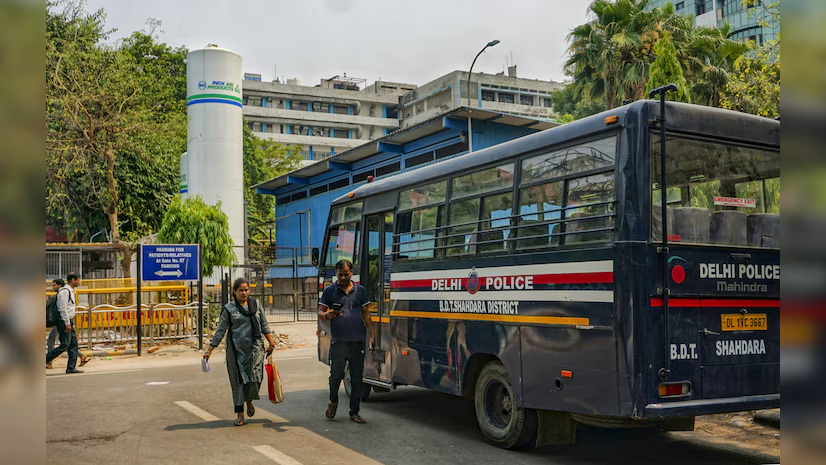Indore win Swachh Survekshan Awards 2023, named as ‘cleanest city’ in India for seventh time : Indore and Surat were jointly named India’s cleanest cities in the Swachh Survekshan Awards-2023, which were delivered by President Droupadi Murmu on Thursday at the Bharat Mandapam. This was Madhya Pradesh’s eighth consecutive win, and Surat’s first, albeit shared, pole position.
On Thursday, the seventh sky touching ceremony was celebrated at Rajwada, the heart of the city. The residents of the city shared the happiness of the cleanliness festival with the public representatives who returned from Delhi with the awards.
indore win Swachh Survekshan Awards 2023, named as ‘cleanest city’ in India for seventh time
On this occasion, Mayor Pushyamitra Bhargava said that the bells of Indore are ringing again in the entire country. This award is dedicated to Safai Mitras. Indore has made innovations in cleanliness. This trend will continue this time also. We have to bring the award for the eighth time also. Minister Tulsi Silavat said that Indore has become a brand in cleanliness. Other cities are following our cleanliness model. Cleanliness has become a habit for the people of Indore.
Municipal Commissioner Harshika Singh said that public participation is our strength. The public fulfilled its responsibility. The Municipal Corporation team performed its duty and we again came at number one. The people of Indore said that Indore has the right to the cleanliness award. Every citizen is playing his role in cleanliness. The sanitation workers of the corporation cannot be praised enough. Along with the celebration, people also took a pledge that for the eighth time also we will remain number one in cleanliness.
On the opposite end of the spectrum, three of the lowest-ranked cities in the million-plus population category were in West Bengal: Haora (Howrah) was at the bottom, with Asansol and Kolkata close behind as the worst-performing cities on cleanliness metrics. The fourth and fifth worst cities on the list were Faridabad in Haryana and Madurai in Tamil Nadu, respectively.
The Municipal Corporation of Delhi (MCD) was ranked 90th out of 446 cities (with a population of more than 100,000), but the New Delhi Municipal Council area was placed ninth.
The Swachh Survekshan survey is crucial to the Union government’s Swachh Bharat campaign, which was launched as one of Narendra Modi’s major projects during his first few years in power. For the eighth edition of the survey, 3,000 assessors travelled to 4,500 cities (of which 3,970 have a population of fewer than 100,000 people) to evaluate a city’s performance on 46 criteria, including waste collection, inclusive restrooms, and improved plastic waste management.
Go to Homepage
President Murmu launched the Swachh Survekshan-2023 dashboard at the Bharat Mandapam in Delhi, stating that the G20 Leaders’ Delhi Declaration commits to improving environmentally sound waste management, significantly reducing waste generation by 2030, and emphasising the importance of zero waste initiatives. recognising the concept of “Reduce, Reuse and Recycle” as it relates to the cleanliness survey for 2024, she said: “It is highly commendable that in the second phase of the Swachh Bharat Mission, circular waste management is being followed and the circular economy process of recycling and reusing more and more items is proving helpful for sustainable development.”
Hardeep Singh Puri, Union Minister of Housing and Urban Affairs, claimed that every city in India is devoid of blatant defections. “This became possible because the Swachh Bharat Mission went from (being) a government programme to becoming a Jan Andolan (people’s movement).”
“Swachh Survekshan began modestly in 2016 and already includes 447 cities and urban local bodies. In this eighth round, we received comments from 12 crore people,” the minister stated.
The NDMC area was the cleanest city among Union territories, while New Delhi placed third out of 35 capital areas.
Among smaller cities with fewer than 100,000 population, Saswad in Maharashtra was named the cleanest city, followed by Patan in Chhattisgarh and Lonavala in Maharashtra.
Varanasi and Prayagraj were named the cleanest Ganga towns, while Maharashtra, Madhya Pradesh, and Chhattisgarh were deemed the finest-performing states.
Overall, Maharashtra, Madhya Pradesh, and Chhattisgarh were the cleanest states, with Rajasthan, Mizoram, and Arunachal Pradesh at the bottom.
Puri emphasised the increased waste creation in recent years, saying, “Cleanliness has become a social revolution, and the impact can be seen everywhere.” Waste processing has increased from 15-16% in 2014 to 76% by 2023. In the next 2-3 years, we will treat all garbage created.”
By March 2024, all Indian cities are expected to be designated as Safaimitra Surakshit under the Ministry of Social Justice and Empowerment’s National Action for Mechanised Sanitation Ecosystem Scheme.
The Swacch Survekshan awards in 2023 were themed “Waste to Wealth for Garbage-Clear Cities”.
This time around, the cities were graded on a scale of 9500 points, with 53% based on service level progress, 26% on certification of cleanliness of public places and restrooms, and 23% based on resident comments.
Surat’s transformation from plague-infested metropolis in 1994 to India’s cleanest city has been a “uphill task”. “The city faces increasing migration and industrialisation challenges,” said Shalini Agarwal, the municipal commissioner. “However, we have connected our infrastructure with sanitation and waste management systems. We deployed our integrated command and control centre to monitor waste management. We made hygiene a mass movement, which resulted in high scores across all metrics,” she explained.
On the other side, the rankings of Bengali cities became a source of dispute. Atin Ghosh, the deputy mayor of Kolkata, stated, “I have not read the report myself. However, if it implies that Bengali cities, including Kolkata, are among the lowest performing, the research appears to be politically motivated. When people stroll throughout the city, they can see what is real.”
Bharti Chaturvedi, founder of Chintan Environmental Research and Action Group, which focuses in trash management, stated that the awards, in addition to encouraging healthy competition among cities and states, serve as a platform for peer learning, which was previously lacking. “Cities in western India, namely Indore, Surat, and Navi Mumbai, appear to be performing better than cities in the north. In fact, the states as a whole are performing far better than their northern Indian equivalents. This demonstrates that the citizens of these places interact differently, and there is much to learn from this. The other persistent tendency over the last three to four years is that smaller cities outperform their larger counterparts. This demonstrates the need for a more distributed approach to waste management.









